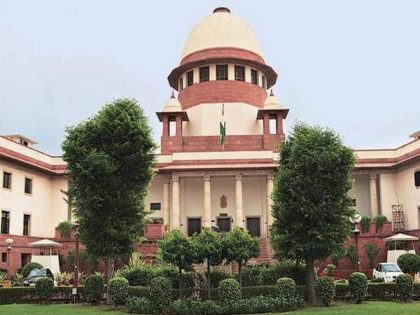Supreme Court Overrules 2004 Verdict Says Sub-Classification of SC-ST Permissible
By Lokmat English Desk | Updated: August 1, 2024 11:31 IST2024-08-01T11:31:42+5:302024-08-01T11:31:46+5:30
The Supreme Court on Thursday, August 1, overruled its 2004 verdict by a five-judge bench in EV Chinnaiah vs ...

Supreme Court Overrules 2004 Verdict Says Sub-Classification of SC-ST Permissible
The Supreme Court on Thursday, August 1, overruled its 2004 verdict by a five-judge bench in EV Chinnaiah vs State of Andhra Pradesh, which stated that sub-classification was impermissible on the grounds that SC/STs constitute homogenous classes.
A bench comprising seven judges of the apex court has ruled by majority that sub-classification within the Scheduled Castes and Scheduled Tribes (SC/STs) is permissible.
CJI DY Chandrachud said there are six opinions. He stated, "The majority of us have overruled EV Chinnaiah and we hold sub-classification is permitted." Justice Bela Trivedi dissented.
CJI further stated that at the lowest levels, the struggles faced by the class do not disappear with their representation. "The holding of Chinnaiah that sub-classification of the scheduled classes is impermissible is overruled," he added.
Justice BR Gavai noted that there are categories within the SC/STs which have faced oppression for centuries. He emphasized that the state must evolve a policy to identify the creamy layer among the SC/ST category and exclude them from the fold of affirmative reservation.
In her dissenting judgment, Justice Bela M. Trivedi disagreed with the majority. She asserted that in the absence of executive or legislative power, the states do not have any competence to sub-classify the castes and sub-classify the benefits reserved for all of the Scheduled Castes.
"Sub-classification by states would amount to tinkering with the Presidential notification under Article 341(2)," she further added.
Open in app